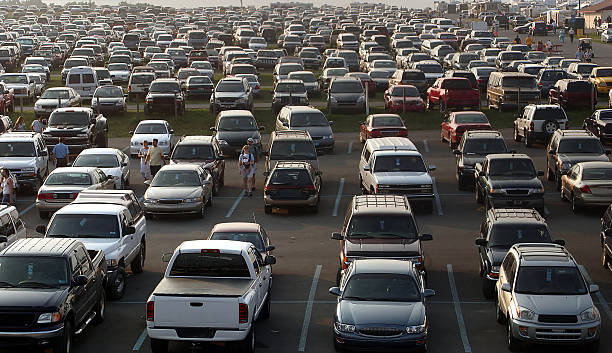The government announced on Monday that imports of accidental vehicles will be prohibited, while a 40% tariff will be applied when commercial imports of used cars are allowed next month, aiming to protect the local auto industry, The Express Tribune reported.
Joint Secretary Trade Policy Mohammad Ashfaq said in a joint meeting of the Senate standing committees on finance and industry that the import of low-quality and accident-damaged vehicles would not be permitted.
He added that under the agreement with the International Monetary Fund (IMF), used cars would receive additional tariff protection of 40% compared with new vehicles from this fiscal year.
Ashfaq further noted that the government has yet to decide whether special schemes for car imports would continue once commercial imports are permitted. Currently, commercial imports are banned, and vehicles enter through transfer of residence, baggage, or gift schemes. These imports supply roughly one-fourth of domestic demand, as consumers often prefer imported mildly damaged vehicles over locally manufactured ones.
The IMF has required Pakistan to allow commercial import of used cars up to five years old from September and remove age and other restrictions entirely from July next year.
Local industry bodies, including Pakistan Automotive Manufacturers Association (PAMA) and Pakistan Association of Automotive Parts and Accessories Manufacturers (PAAPAM), have lobbied against the government and IMF plans and presented their concerns to the committees.
Ashfaq said that over the next four years, the 40% import tariff on used vehicles will gradually be reduced to zero. Imports of vehicles aged six to eight years will also be allowed, subject to quantity limits and safety standards to prevent environmental hazards.
Under the IMF programme, Pakistan is required to reduce import tariffs from 20.2% to 9.7% over five years, a 52% decline. In the first year (FY26), the rate will fall to 15.7%, achieved by lowering average customs duty to 11.2%, additional customs duty to 1.8%, and regulatory duty to 2.7%.
Additional and regulatory duties will be phased out over four to five years, with exemptions removed in the same period. The number of tariff slabs will reduce to four, with a maximum rate of 15%. Duties on auto sector products covered under the Auto Policy, currently at 35%, will be removed from July 1, 2026.
Local assemblers argued that despite trade liberalisation, car prices would remain high due to government taxes ranging from 30% to 61% of the vehicle price.
Senator Qadir supported the policy to withdraw protection, citing potential efficiency gains and improved safety standards. Committee members noted that locally produced cars currently have fewer safety features, with only two airbags compared to six in imported vehicles, although industry representatives claimed overall quality was comparable.





Local auto assemblers have failed to deliver acceptable quality new cars and sold them at sky high prices. Most consumers would rather have a 10 years old foreign assembled car than brand new Pak assembled car. Compared brand new japan assembled corolla with a Pak assembled one. Pak model is missing 18 safety convenience and performance features.